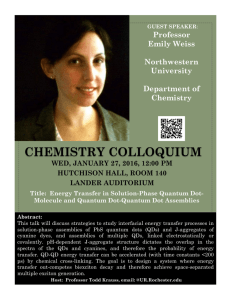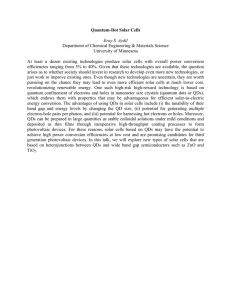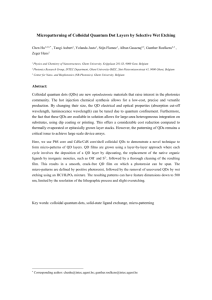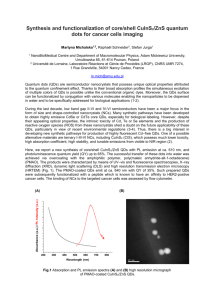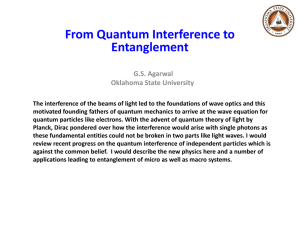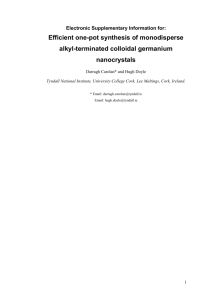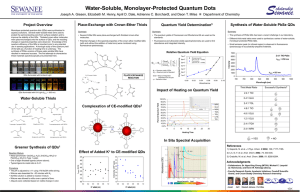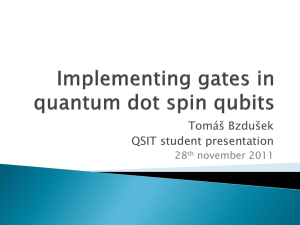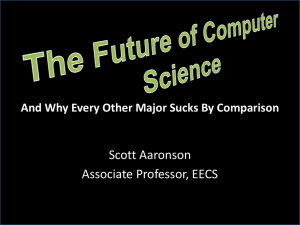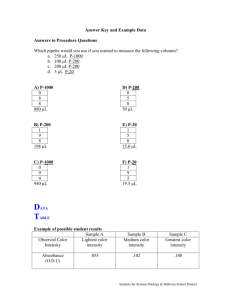PPT
advertisement
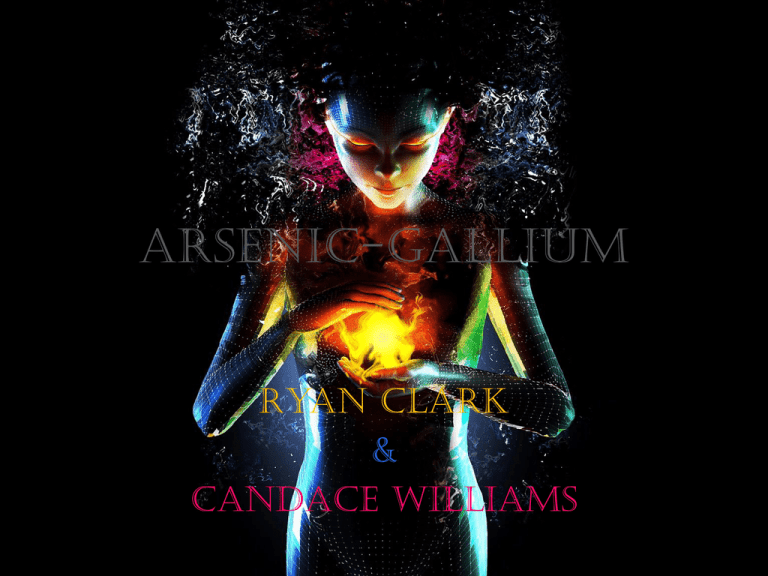
Arsenic-Gallium Ryan Clark & Candace Williams Overview Efficiency Chemical Structures Uses Problems Spectra Synthesis Their optimal efficiency is 65%, compared to 40.7% from single band solar cells. A QD-SC utilizes the nano-scale quantum mechanical properties to allow for more efficient excitation of light by increasing surface area. E. Antolín, A. Martí, C. D. Farmer, P. G. Linares, E. Hernández, A. M. Sánchez, T. Ben, S. I. Molina, C. R. Stanley, and A. Luque. “Reducing carrier escape in the InAs/GaAs quantum dot intermediate band solar cell”. JOURNAL OF APPLIED PHYSICS 108, 064513 2010. The chemical structures of the two types of quantum dots are InyGa1−yAs and GaAs1−xPx, although the composition may change depending on what is being studied.iii A typical concentration of QDs is 100%, as the active sub-units of each cell are made of QDs. Intermediate Band Quantum Dot Solar Cell Diagram Iii Voicu Popescu, Gabriel Bester,* Mark C. Hanna, Andrew G. Norman, and Alex Zunger. “Theoretical and experimental examination of the intermediate-band concept for strainbalanced (In,Ga)As/Ga(As,P) quantum dot solar cells”. PHYSICAL REVIEW B 78, 205321 _2008_ Uses Microwave frequency integrated circuits Infrared light-emitting diodes Monolithic microwave integrated circuits What’s The Problem? Spectroscopic Characterization Most spectroscopic techniques used for characterization act on bulk quantities such as solutions and solid crystals. For QDs, these methods are unviable because the nanometer scale of the structures makes them incapable of interacting with the instrumentation in a useful fashion. The methods by which these nano-structures are characterized utilize their interaction with electrical and magnetic fields. Absorbance of The QD vs. The Energy Produced iii This depicts the absorbance of different types of quantum dots versus the incident energy used on them. The undoped QDs show no absorbance at 0.3 eV, whereas the doped QDs show absorbance at this energy. Succinctly, the QD’s utilizing an intermediate band in their superstructure have a noticeably higher absorbance of incident light (incoming photons exciting electrons into excited states) than do QD’s that are undoped at lower energies. Further, doped QD’s continue to have a higher absorbance across all energies up to the low energy cutoff of the detector. Iii Voicu Popescu, Gabriel Bester,* Mark C. Hanna, Andrew G. Norman, and Alex Zunger. “Theoretical and experimental examination of the intermediate-band concept for strain-balanced (In,Ga)As/Ga(As,P) quantum dot solar cells”. PHYSICAL REVIEW B 78, 205321 _2008_ A Molecular Beam Epitaxy Chamber Happy Easter!!!! Have a safe spring break And don’t Be This Girl Or This Guy
